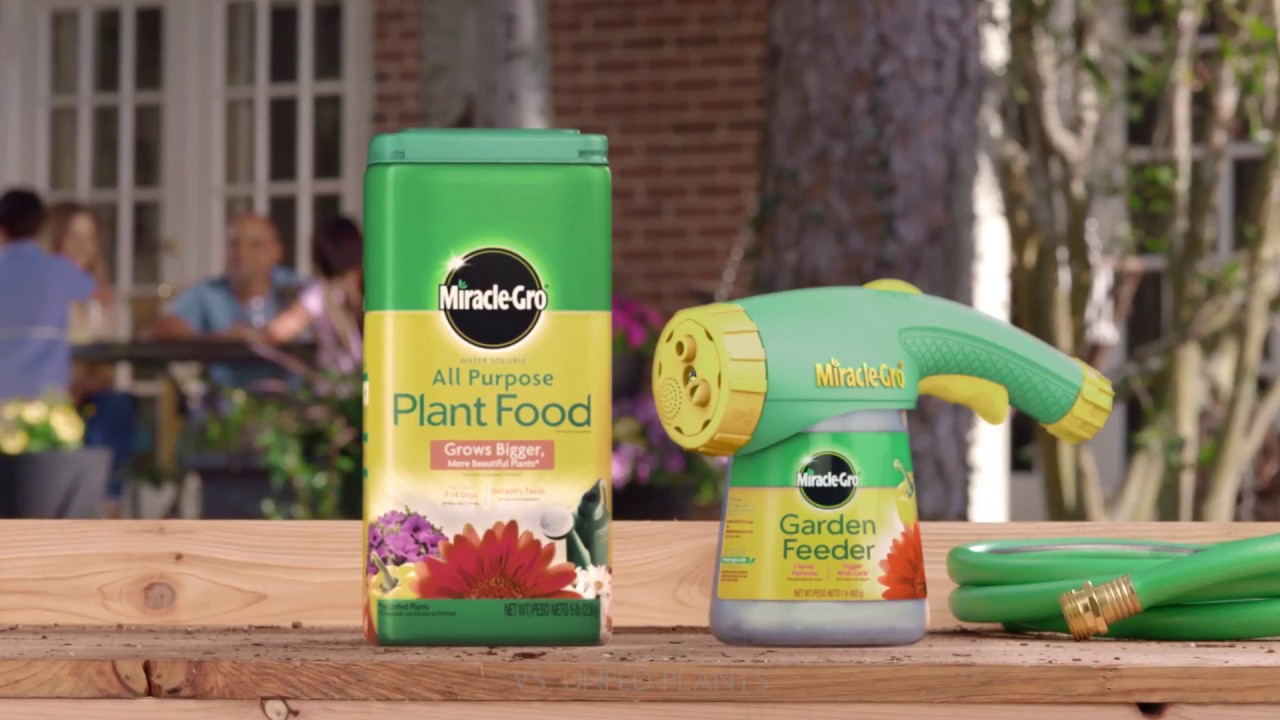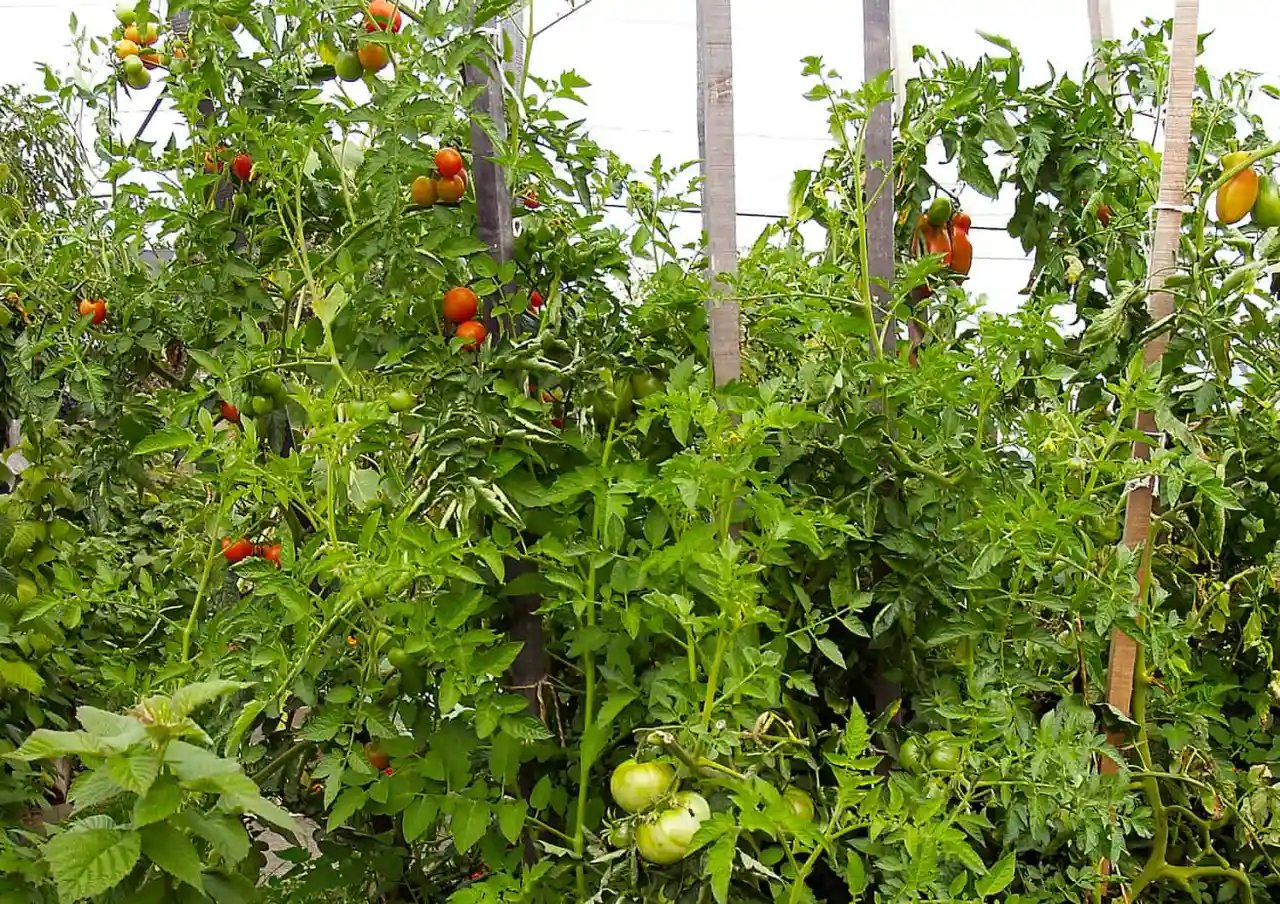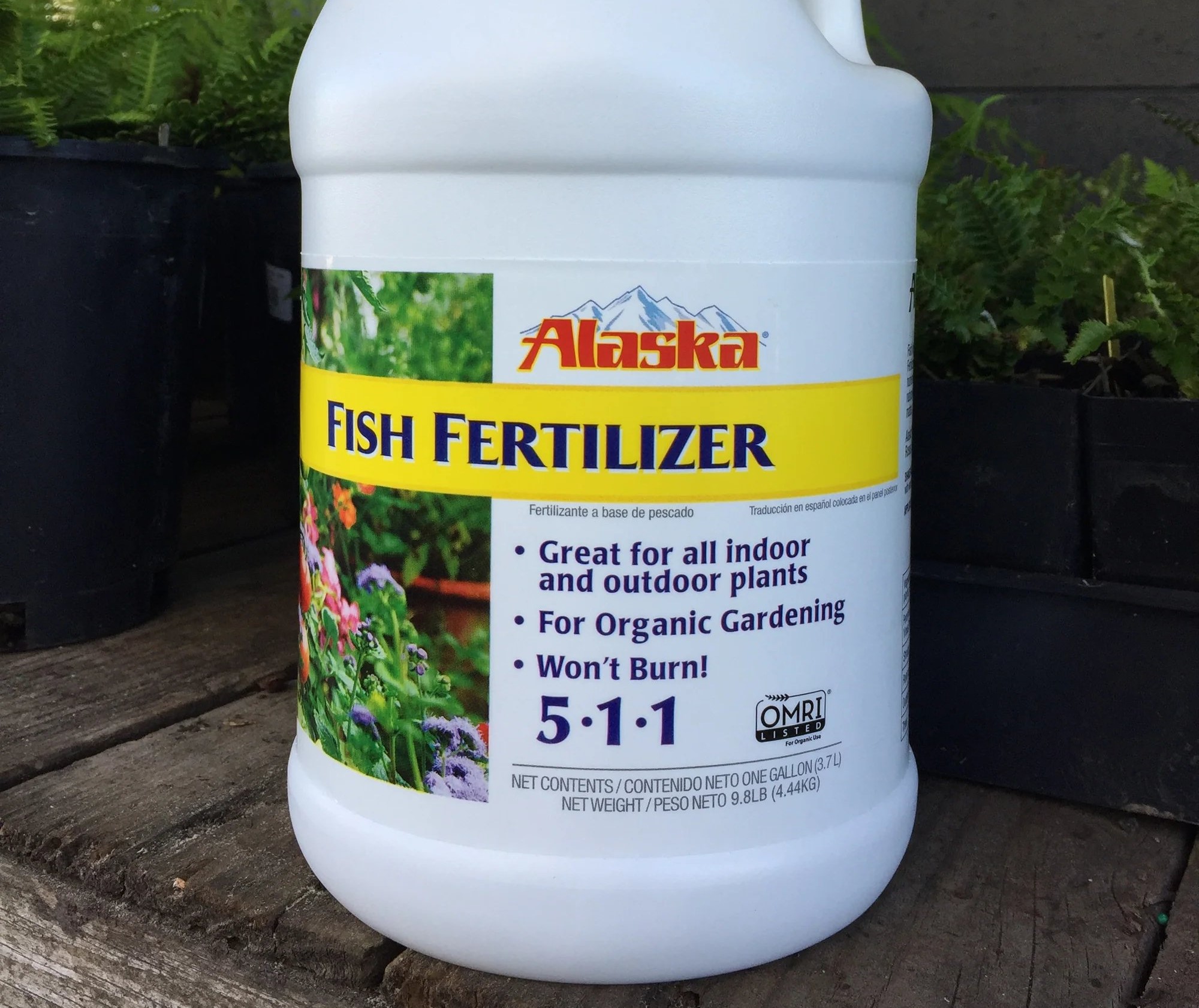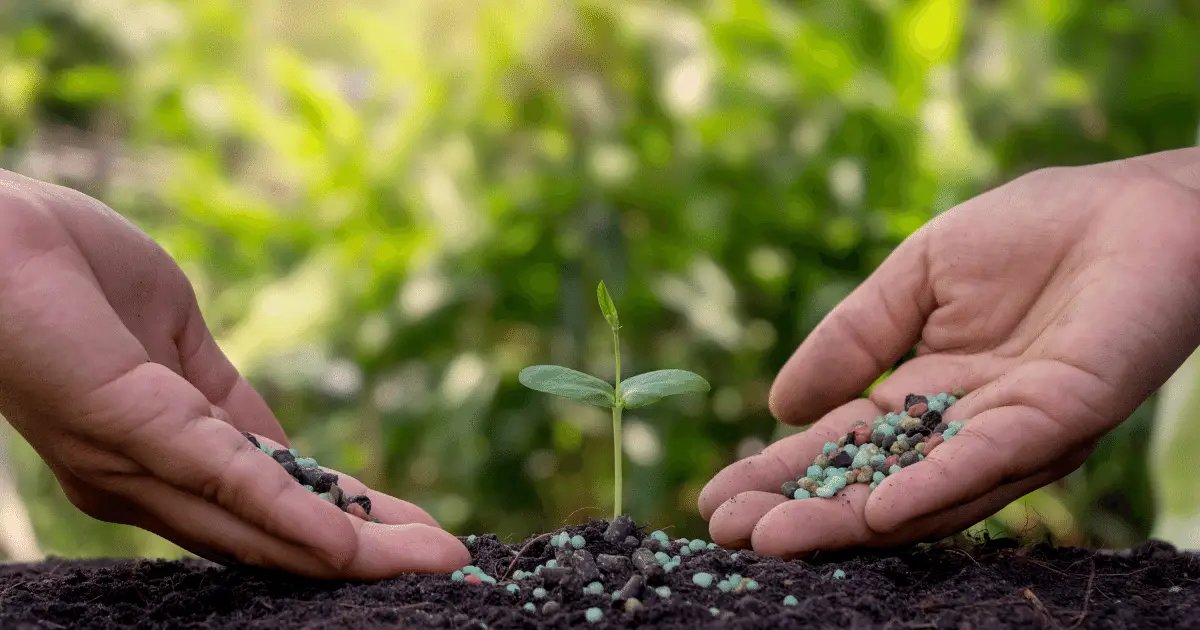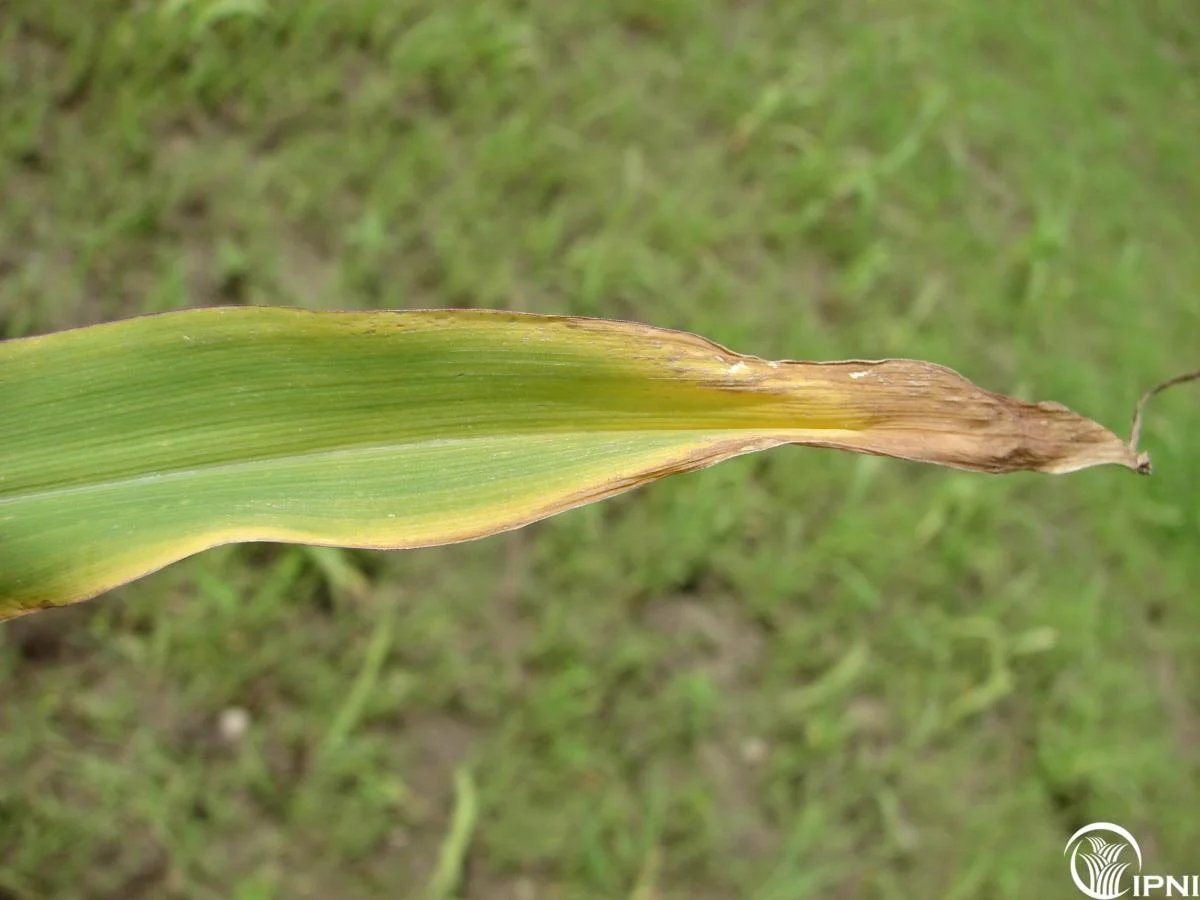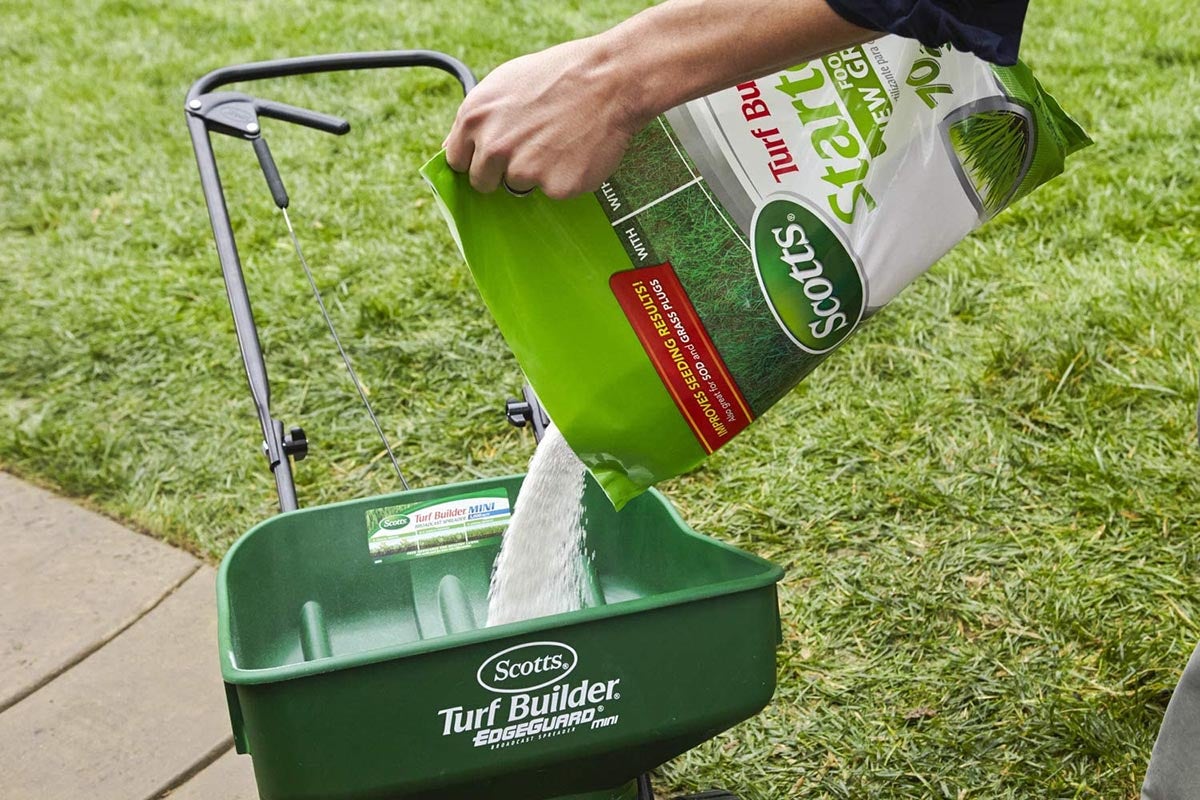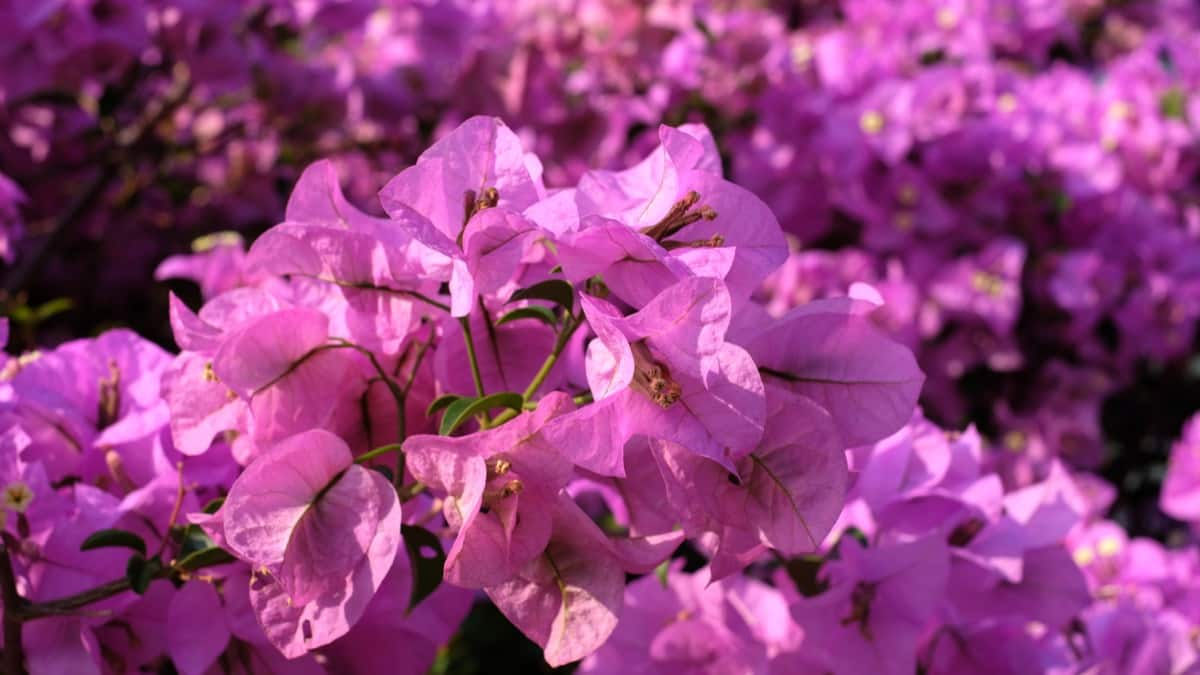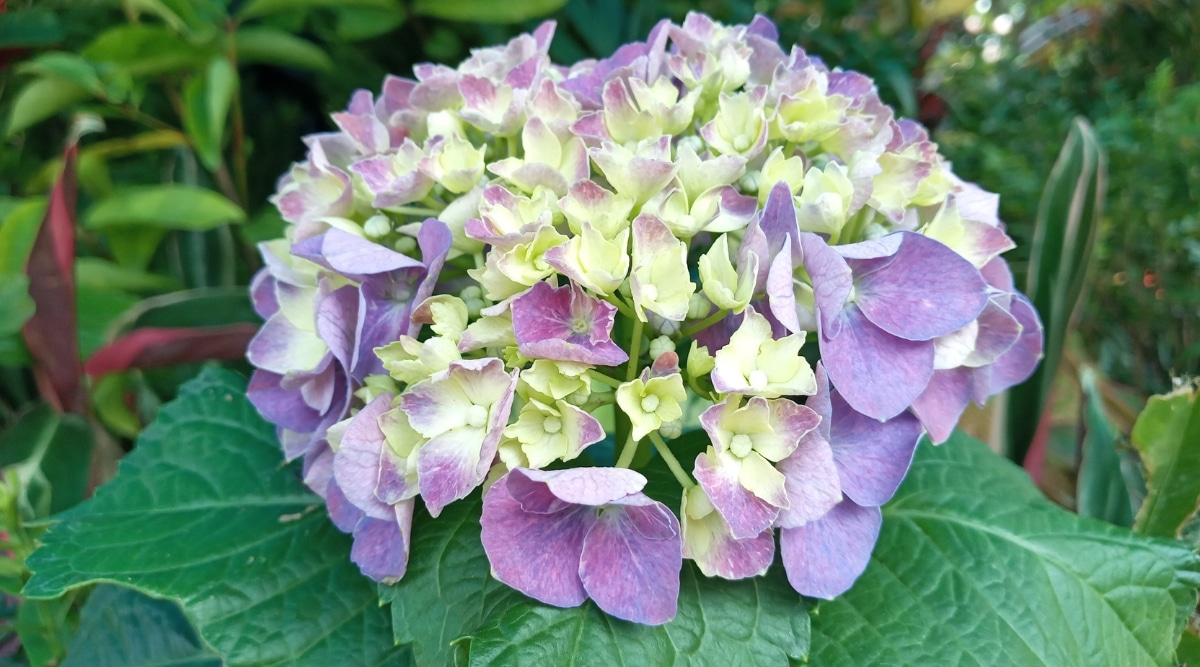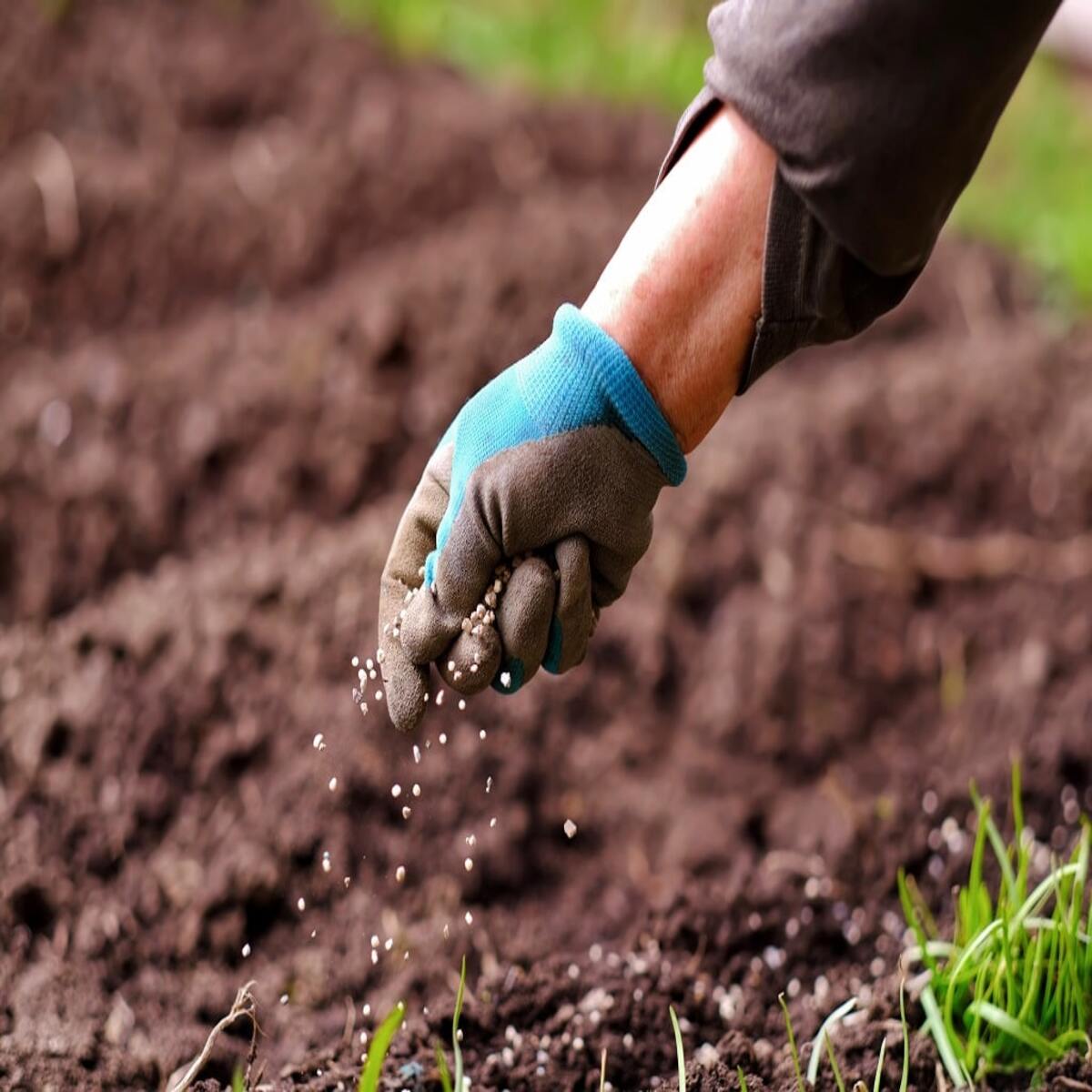Home>Gardening Tips and Tricks>Eco-Friendly Gardening>How To Use Bunny Poop As Fertilizer
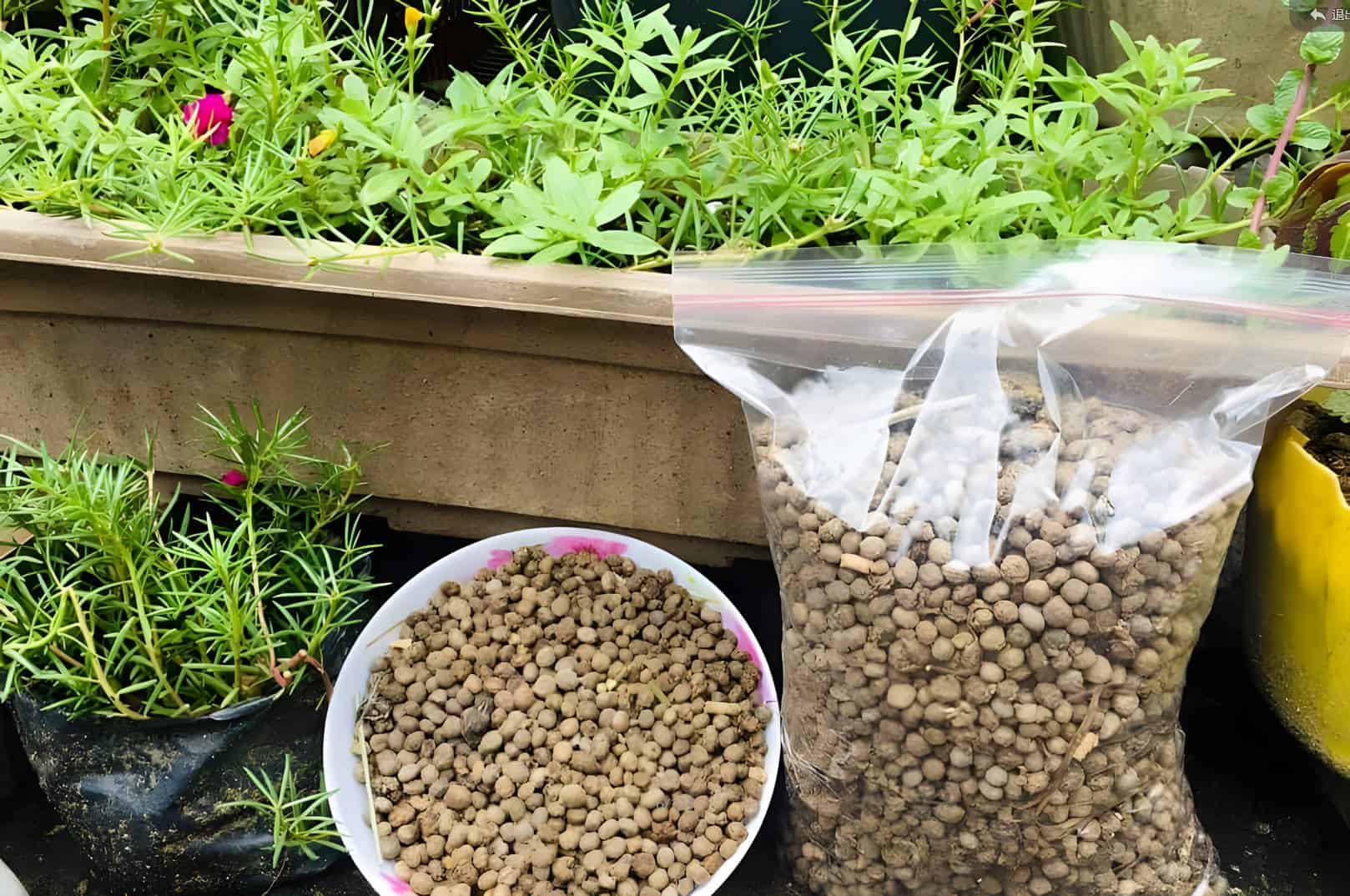

Eco-Friendly Gardening
How To Use Bunny Poop As Fertilizer
Modified: January 22, 2024
Discover the benefits of eco-friendly gardening with our guide on how to use bunny poop as fertilizer. Boost your garden's growth naturally and sustainably.
(Many of the links in this article redirect to a specific reviewed product. Your purchase of these products through affiliate links helps to generate commission for Chicagolandgardening.com, at no extra cost. Learn more)
Table of Contents
Introduction
Welcome to the world of eco-friendly gardening! In today’s fast-paced and environmentally conscious society, more and more people are opting for sustainable gardening practices that not only enhance the beauty of their surroundings but also minimize harm to the planet. And one such practice gaining popularity is the use of bunny poop as a natural fertilizer.
Yes, you read that right! Bunny poop, or rabbit manure, is not only readily available but also a fantastic source of organic matter that can be used to boost the health and vitality of your plants. It is rich in essential nutrients like nitrogen, phosphorus, and potassium, making it an excellent alternative to chemical-based fertilizers.
But why choose bunny poop over other fertilizers? Well, besides being a renewable resource, it has several other benefits that make it an ideal choice for eco-conscious gardeners.
In this comprehensive guide, we will explore the various aspects of using bunny poop as a fertilizer. From collecting and preparing the manure to applying it to your plants and the precautions to take along the way, we will cover everything you need to know to make the most of this natural garden booster.
So, if you’re ready to take your gardening game to the next level, let’s dive right in and discover the wonders of bunny poop as a sustainable gardening solution!
Benefits of Using Bunny Poop as Fertilizer
Using bunny poop as a fertilizer offers a myriad of benefits for your garden. Let’s take a closer look at why it’s a wise choice for eco-friendly gardening:
- Rich Nutrient Content: Bunny poop is a nutrient powerhouse. It contains high levels of nitrogen, phosphorus, and potassium, which are essential for healthy plant growth. These nutrients promote strong root development, lush foliage, and robust fruiting.
- Slow Release of Nutrients: Unlike synthetic fertilizers that release nutrients quickly and lead to nutrient runoff, bunny poop provides a slow release of nutrients. This gradual release ensures that plants receive a steady supply of nutrients over time, reducing the risk of over-fertilization and environmental pollution.
- Improves Soil Structure: Bunny poop acts as a soil amendment, improving the soil structure and enhancing its ability to retain moisture. It helps loosen compacted soil, allowing air, water, and nutrients to penetrate deep into the root zone. This leads to healthier, more resilient plants.
- Enhances Beneficial Microorganisms: Organic matter, such as bunny poop, supports the growth of beneficial microorganisms in the soil. These microorganisms break down organic matter into nutrients that are readily available for plant uptake. These microorganisms also help suppress harmful pathogens, resulting in healthier plants.
- Environmentally Friendly: Using bunny poop as a fertilizer aligns with eco-friendly gardening practices. By utilizing a natural and renewable resource, you reduce reliance on chemical fertilizers and contribute to a sustainable and balanced ecosystem. It’s a win-win for your garden and the environment.
As you can see, incorporating bunny poop into your gardening routine can have a positive impact on plant health, soil fertility, and environmental sustainability. So why not harness the power of this organic fertilizer and give your plants the nourishment they deserve?
Collecting Bunny Poop
When it comes to collecting bunny poop for use as fertilizer, there are a few options available depending on whether you have pet rabbits or access to a local farm or sanctuary. Here are some ways to gather bunny poop:
- Pet Rabbits: If you have pet rabbits, collecting their poop is relatively easy. Place a litter box with absorbent bedding material, such as straw or wood shavings, in their enclosure. Rabbits naturally use a specific area as a bathroom, so you can scoop up the droppings from the litter box regularly. It is important to use droppings from healthy rabbits that have not been on medication or have eaten toxic plants.
- Local Farms or Sanctuaries: If you don’t have pet rabbits, reach out to local farms or animal sanctuaries. Many places that house rabbits will be happy to provide you with their bunny poop. Offer to clean out their rabbit enclosures in exchange for the manure. This benefits both parties involved, as you get a free source of fertilizer, and the farm or sanctuary gets assistance with maintenance.
- Purchase from Garden Centers: Alternatively, if you don’t have access to pet rabbits or local farms, you can purchase bunny poop from garden centers or nurseries. They often sell bagged or composted rabbit manure, which has already been processed and is ready for use as fertilizer.
Remember, when collecting bunny poop, always use gloves and practice proper hygiene to avoid any potential health risks. It’s important to ensure the bunny poop you gather is dry and well-aged, as fresh droppings may contain harmful bacteria. Let the manure dry out completely before using it as fertilizer.
Now that you know how to collect bunny poop, let’s move on to the next step: preparing it for use as a garden fertilizer.
Preparing Bunny Poop for Use as Fertilizer
Before you can apply bunny poop as fertilizer, it’s important to properly prepare it to ensure its effectiveness and safety. Here are the steps to prepare bunny poop for use in your garden:
- Drying: Fresh bunny poop contains high moisture content, which can lead to odors and an increased risk of harboring pathogens. To address this, spread the freshly collected bunny poop on a flat surface, like a tray or tarp, and allow it to dry in a well-ventilated area. The drying process typically takes a few weeks, depending on the weather conditions.
- Composting: Once the bunny poop is sufficiently dry, you have the option to further enhance its quality by composting it. Composting breaks down the manure, transforming it into nutrient-rich humus that is even more beneficial for your plants. Add the dried bunny poop to your compost pile or bin, making sure to mix it with other organic matter such as leaves, grass clippings, and kitchen scraps. Regularly turn the compost pile to promote decomposition and ensure a well-balanced, nutrient-rich compost.
- Screening: If you prefer a smoother consistency, you can screen the composted bunny poop to remove any larger particles or debris. Use a mesh screen or sieve with small openings to sift the compost and collect the finer material. The screened compost can then be directly applied to the garden without any large clumps.
- Storage: If you have excess bunny poop compost or want to save it for future use, store it in a dark, moisture-controlled location. Airtight containers or bags will help prevent the compost from drying out or absorbing excess moisture. Proper storage ensures that the compost remains free from contaminants and retains its nutrient value until you’re ready to use it in your garden.
By following these simple steps, you can ensure that the bunny poop is properly prepared for application as a garden fertilizer. The drying, composting, and screening processes improve the quality, texture, and nutrient content of the manure, allowing you to fully harness its benefits for your plants.
Now that you have prepared the bunny poop, it’s time to learn how to apply it effectively to your garden.
Applying Bunny Poop Fertilizer
Once you have prepared your bunny poop fertilizer, it’s time to apply it to your garden. Proper application techniques ensure that the nutrients are effectively delivered to your plants and promote their healthy growth. Here are some key tips for applying bunny poop fertilizer:
- Timing: The best time to apply bunny poop fertilizer is during the spring or fall when plants are actively growing and in need of nutrients. Avoid applying it during extreme weather conditions, such as during excessively hot or cold periods.
- Distribution: Spread the bunny poop fertilizer evenly over the soil surface, around the base of plants, avoiding direct contact with the plant stems. A thin layer, about half an inch thick, is usually sufficient. Use a rake or gardening tool to gently incorporate the fertilizer into the top layer of soil, ensuring it doesn’t sit on the surface and wash away with rain or irrigation.
- Quantity: The amount of bunny poop fertilizer to use depends on the size of your garden, the specific plant’s nutrient requirements, and the quality of the composted manure. Start with a conservative amount and gradually increase if needed. It’s crucial not to over-fertilize, as excessive nutrient levels can burn the plants’ roots or contribute to nutrient runoff into water sources.
- Watering: After applying the bunny poop fertilizer, water the garden thoroughly to help the nutrients penetrate into the soil and reach the plant roots. This step is especially important if you applied the fertilizer during dry weather conditions.
- Maintenance: As the bunny poop fertilizer breaks down and releases nutrients, you may need to reapply it every few months or as recommended for specific plants. Monitor the growth and health of your plants and adjust the fertilization schedule accordingly.
- Combining with Other Fertilizers: Bunny poop fertilizer can be used alone or in combination with other organic or commercial fertilizers. Experiment and find the best approach that suits your gardening needs. Remember, moderation is key, and always follow the instructions provided by the manufacturer when using any commercial fertilizers.
By following these application guidelines, you’ll ensure that your plants receive the right amount of nutrients from the bunny poop fertilizer. It’s a natural and eco-friendly way to promote plant growth and enhance the overall health of your garden.
In the next section, we’ll discuss some important precautions and tips to keep in mind while using bunny poop fertilizer.
Precautions and Tips
While bunny poop fertilizer is generally safe and beneficial for plants, there are some precautions and tips to keep in mind to ensure the best results and avoid any potential issues. Here are some important considerations:
- Avoid Fresh Bunny Poop: Only use well-aged, dried, and composted bunny poop as fertilizer. Fresh droppings may contain harmful bacteria and pathogens that can cause plant diseases or health hazards.
- Use Gloves: When handling bunny poop, always wear gloves to protect yourself from potential bacteria or parasites that may be present. Wash your hands thoroughly after working with the manure to maintain proper hygiene.
- Do Not Overapply: Avoid overapplying bunny poop fertilizer. Using too much can lead to nutrient imbalances, burn plant roots, or contribute to nutrient runoff into water sources. Start with a conservative amount and adjust as needed based on your plants’ response.
- Consider Nitrogen-Rich Plants: Bunny poop fertilizer is particularly beneficial for nitrogen-loving plants such as leafy greens, vegetables, and fruiting plants. These plants thrive with the extra nitrogen boost provided by the bunny poop.
- Watering: Ensure proper watering after applying bunny poop fertilizer. It helps in nutrient absorption and prevents plants from drying out. Monitor soil moisture levels and adjust your watering schedule accordingly.
- Consider Composting Time: If you choose to compost bunny poop, remember that the composting process takes time. Allow sufficient time for proper decomposition to ensure that the compost is fully mature and safe for use in the garden.
- Consult Plant-Specific Guidelines: Different plants have varying nutrient requirements. Refer to specific plant guides or consult with local gardening experts to determine the ideal fertilizer needs and timing for your specific plant varieties.
By following these precautions and tips, you can ensure a safe and effective application of bunny poop fertilizer in your garden. The key is to strike the right balance and tailor the fertilizer use to meet the needs of your plants.
As a responsible gardener, you are not only nourishing your plants but also contributing to a healthier and more sustainable environment.
Now that you’re equipped with all the necessary information, it’s time to give bunny poop fertilizer a try and enjoy the benefits it brings to your garden!
Conclusion
Congratulations! You have now discovered the wonders of using bunny poop as an eco-friendly garden fertilizer. By harnessing the power of organic matter, you can enhance the health and vitality of your plants while reducing your reliance on synthetic fertilizers.
We have explored the benefits of bunny poop fertilizer, including its rich nutrient content, slow-release properties, ability to improve soil structure, and promotion of beneficial microorganisms. We have also discussed the various methods of collecting bunny poop, whether through pet rabbits, local farms, or purchasing from garden centers.
Preparing bunny poop for use as fertilizer involves drying, composting, and screening processes to ensure its effectiveness and safety. And when it comes to applying bunny poop fertilizer, timing, distribution, and proper quantities are key factors to consider for optimum plant growth and health.
Throughout this guide, we have emphasized the importance of precautions and tips, such as avoiding fresh bunny poop, using gloves, not overapplying the fertilizer, and consulting plant-specific guidelines for best results. By following these guidelines, you can ensure a successful and sustainable gardening experience.
Remember, eco-friendly gardening practices, like using bunny poop fertilizer, contribute to a healthier environment by reducing the use of harmful chemicals and promoting natural processes. With your commitment to sustainable gardening, you are playing a vital role in preserving our planet for future generations.
So go ahead, embark on your gardening journey with bunny poop as your organic fertilizer of choice. Watch as your plants thrive, your soil becomes healthier, and your garden flourishes with life. Happy gardening!
